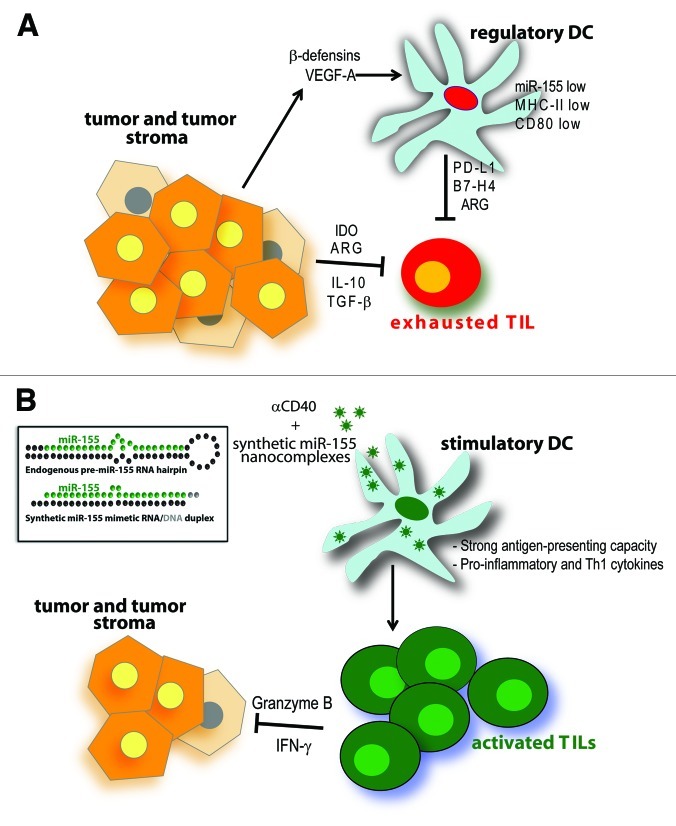Figure 1. Re-programming tumor-associated DCs using miR-155 nanoparticles. (A) Ovarian cancers can directly control the cytotoxic activity of tumor-infiltrating T cells (TILs) by producing IL-10, TGF-β, indoleamine 2,3-dioxygenase (IDO) and arginase (ARG). In addition, they express β-defensins and VEGF-A, which recruit and transform immature DCs into pro-angiogenic and immunosuppressive cells. These atypical DCs show defective antigen-presenting capacity and express immunosuppressive molecules such as PD-L1, ARG and B7-H4, among many others. Overall, the immunosuppressive molecules produced in the TME inhibit the activity of anti-tumor T cells, thus contributing to tumor growth and progression. (B) Intraperitoneally-injected nanoparticles encapsulating synthetic miR-155 mimetic compound (inset) are preferentially engulfed by ovarian cancer-associated DCs. In combination with CD40 stimulation, miR-155 supplementation induces potent activation/maturation of tumor-associated DC, a process that transforms them into immunostimulatory cells that promote the expansion and function of anti-tumor T cells.

An official website of the United States government
Here's how you know
Official websites use .gov
A
.gov website belongs to an official
government organization in the United States.
Secure .gov websites use HTTPS
A lock (
) or https:// means you've safely
connected to the .gov website. Share sensitive
information only on official, secure websites.
